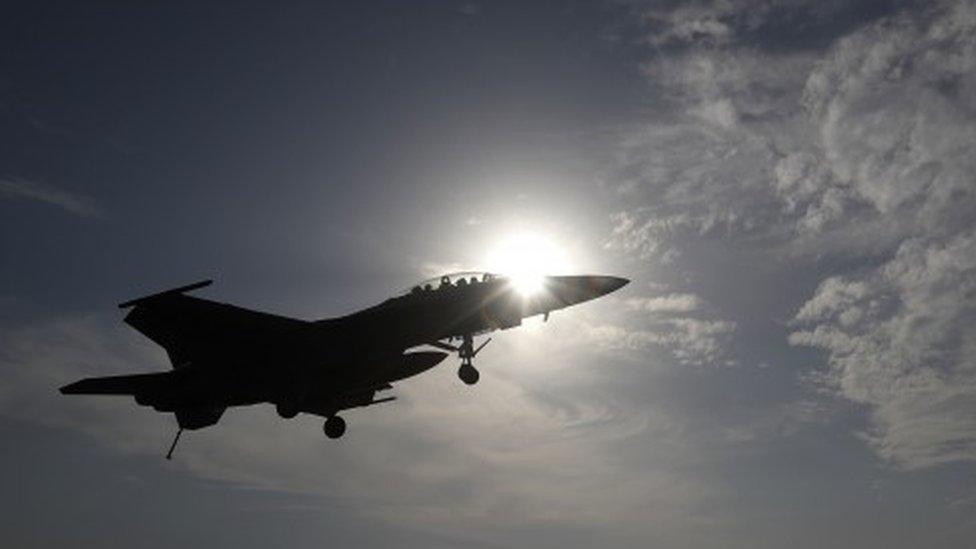Afghanistan: UN 'concerned' about Helmand casualties
- Published

US officials say military aircraft have carried out about 30 attacks in Helmand over the last week
The United Nations has said that it is increasingly worried about the high number of civilian deaths in the Afghan province of Helmand.
In a statement, the UN Assistance Mission in Afghanistan (Unama) said that airstrikes on Thursday and Friday killed at least 18 civilians.
It said the Taliban was also to blame, killing at least seven civilians in a suicide bombing on Saturday.
The US military says that it is investigating the air strike incidents.
The pilots have been defended by the Afghan government who pointed out that such events are inevitable when the Taliban use civilians as human shields.
A suicide attack targeted an Afghan Army vehicle in Lashkar Gah on Saturday
Seven died in the Lashkar Gah attack
The UN statement said the air strikes were carried out by "international military forces".
But US officials say only American planes have recently been in action over the skies of Afghanistan.
"The people of Helmand have suffered greatly due to the armed conflict in Afghanistan, with 891 civilians killed or injured during 2016," the statement said.
"This figure was the highest in the country in 2016 outside of Kabul."
The statement urged all parties to the conflict "strictly to adhere to their obligations under international humanitarian law" to protect civilians from suffering.
World powers jostle in Afghanistan's new 'Great Game'
Did the UK leave Afghanistan's Helmand too soon?
Afghanistan Taliban: Mistrust and fear in battle for Helmand
US military officials say aircraft have carried out about 30 attacks in Helmand over the last week.
"We are investigating the allegations and [are] working diligently to determine whether civilians were killed or injured as a result of US air strikes," Brigadier General Charles Cleveland told the Reuters news agency.
But the families of those killed last week are outraged.
"How could women and children be Taliban?" one man - who said 11 people were killed in his brother's house in Sangin by an air strike on Thursday - asked a correspondent for Reuters news agency.
British forces were stationed in Helmand province since 2006, but left in 2014 when Nato ended its combat mission in Afghanistan.
Since then the insurgency has continued unabated, and the drugs trade fuelling it is still booming.
- Published25 January 2017
- Published12 January 2017
- Published10 October 2016
- Published11 August 2016
- Published1 August 2016
- Published12 August 2022
- Published7 April 2016
- Published13 January 2016